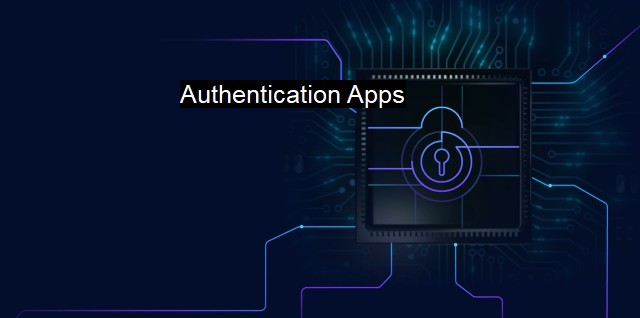What are Authentication Apps?
How Authentication Apps Are Revolutionizing Cybersecurity: A Guide to Advanced User Verification Techniques
Authentication apps, in the context of cybersecurity as well as antivirus, represent an innovative and effective layer of protection that safeguards individuals from hackers and other online threats, thus, enhancing our cyber wellbeing.Authentication is confirming the identity of a person based on the credentials they possess. These could be a debit card number and pin in traditional banking or a username and password while logging into an electronic device or internet service. Authentication apps function in a manner consistent with this definition only they do this on a digital platform.
Authentication apps operate on the principle of what is referred to as two-factor or multi-factor authentication. This refers to a security improvement over the traditional single-factor authentication. While single-factor authentication only requires the user to input a password, two-factor authentication requires them to input another type of authentication in addition to the password, hence resulting in a more robust security protocol.
According to this scheme, the first factor of authentication is typically a password. The second factor could be any other security feature that the user alone has exclusive access to, such as a fingerprint or retina scan. With authentication applications, the second factor is usually a temporary, app-generated code that is invisible to anybody else, thus, significantly augmenting an individual’s cybersecurity.
A reason for the rising popularity of these apps is because of their functionality and security. These apps generate time-bound unique codes that users key in after providing the first layer of security. A hacker would need to have access to this personal gadget at the exact time when the code is generated, making this form of security very highly dependable.
Cybersecurity is a continuously evolving field, and likewise, criminals adapt to it as well by employing modern hacking techniques. Consequently, an authentication app is merely one part of a comprehensive cybersecurity strategy that also includes safe browsing habits, reminder email scans, antivirus software, and regular app/OS updates.
While there are several authentication apps available, some of the apparent leaders in the market are Google Authenticator, Microsoft Authenticator, and Authy. These apps create novel authentication codes every few seconds, making it virtually impossible for a prospective thief to break in before the code changes.
While an authentication app might initially sound quite complicated, their shining accolade is their user-friendliness. Users have to download the app, scan a QR code, and they are good to go. Also, there's no need to worry if the smartphone is lost or stolen. Users can always configure the app on their new device using the recovery code provided during the setup phase.
Authentication apps have emerged as a critical component in the broader cybersecurity landscape. These apps offer an effective way to minimize risk and safeguard against the perpetually growing dilemma of online theft and cybercrime. They uphold a much-needed safeguard in an interconnected world that is increasingly reliant on digital platforms. Despite their effectiveness, authentication apps are just one layer of protection. Remember, maintaining robust cybersecurity necessitates employing a multilayered approach, including sound cyber practices, effective anti-virus software, and understanding that mitigating online threats involves everyone’s concerted effort.

Authentication Apps FAQs
What is an authentication app?
An authentication app is a software application that provides a second layer of authentication to verify the identity of a user accessing a particular system, device or service. These apps typically generate a unique code or token to verify user identity, adding an additional layer of security to the authentication process.How do authentication apps enhance cybersecurity?
Authentication apps enhance cybersecurity by providing an additional layer of security to the authentication process. This means that even if hackers manage to obtain a user's password, they will not be able to access the system without the second layer of authentication. Authentication apps also provide protection against phishing scams and other cyber attacks by ensuring that only legitimate users are granted access.What are some popular authentication apps?
There are several popular authentication apps, including Google Authenticator, Microsoft Authenticator, Authy, LastPass Authenticator, and Symantec VIP Access. Each of these apps works slightly differently, but they all provide an additional layer of security to the authentication process.Do I still need antivirus software if I use an authentication app?
Yes, you still need antivirus software even if you use an authentication app. While authentication apps can provide an additional layer of security to the authentication process, they do not protect against other types of cyber attacks such as malware, viruses, and phishing scams. Antivirus software is designed to detect and remove these types of threats, making it an essential part of any cybersecurity strategy.| | A | | | B | | | C | | | D | | | E | | | F | | | G | | | H | | | I | | | J | | | K | | | L | | | M | |
| | N | | | O | | | P | | | Q | | | R | | | S | | | T | | | U | | | V | | | W | | | X | | | Y | | | Z | |
| | 1 | | | 2 | | | 3 | | | 4 | | | 7 | | | 8 | | |||||||